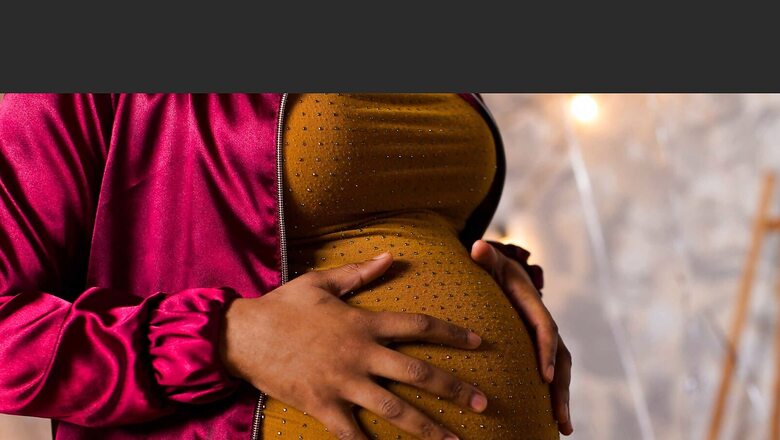Going Beyond Surrogacy Act Debate, This Tamil Nadu Minor's Oocytes Ordeal Unravels a Deeper Distress

views
The Tamil Nadu Health Department has initiated a probe into fertility centers in Erode district, and private hospitals in Kerala and Andhra Pradesh, after the shocking case of a minor girl allegedly raped and forced to sell her oocytes for surrogacy came to light.
A 16-year-old girl from Erode district on June 2 complained that she was forced into a sexual relationship with her mother’s paramour and was made to sell her oocytes eight times. Preliminary investigations revealed that she was taken to Assisted Reproductive Technology (ART) clinics in Erode, Perundurai, Salem, and Hosur with a fake Aadhaar card.
Oocyte retrieval is a procedure in which eggs are taken from a woman’s ovaries. It is one of the steps in the in-vitro fertilization process.
Police have arrested the girl’s mother, S Indirani, who reportedly was a habitual oocytes donor, her partner Syed Ali, and Malathi, an intermediary involved in the selling. Indirani got Rs 20,000 for each sale and gave Malathi Rs 5,000 as commission, a report in The Hindu said. Since the girl was a minor, a fake Aadhaar card with a different name, address, and date of birth as 1995, was forged for the purpose.
A case has been registered under section 5(i),(m),(n) (aggravated penetrative sex) read with other sections of Protection of Children from Sexual Offences (POCSO) Act, 2012 along with IPC sections 420 (cheating) 506(ii) (criminal intimidation) and Section 34 and 35 of the Aadhaar (targeted) Delivery of Financial and Other Subsidies Benefits and Services Act, 2016.
Subsequently, a six-member team from the directorate of medical and rural health services began their probe into the incident. Private hospitals in neighbouring Kerala and Andhra Pradesh are also said to be under the scanner.
This case has turned back focus on exploitative surrogacies, against which the Parliament in December 2021 enacted two new laws – Assisted Reproductive Technology (Regulation) Act, 2021 and Surrogacy (Regulation) Act 2021 – that aim to regulate ART clinics and banks, prevent misuse, and practice safe and ethical ART services and surrogacies.
What are the Provisions of ART Act and Surrogacy Act?
The Surrogacy Act bans commercial surrogacy and allows only “altruistic surrogacy” – surrogacy in which no charge other than expenses incurred by the medical procedure is given to the women – or for couples who suffer proven infertility or disease.
The law also lays out that a surrogate mother has to be a close relative of the couple, a married woman with a child of her own, aged between 25-35 years, and allows her to be a surrogate only once in her life. It says, “no woman, other than a married woman having a child of her own and between the age of 25 to 35 years on the day of implantation, shall be a surrogate mother or help in surrogacy by donating her egg or oocyte or otherwise.”
The Erode minor’s case was a clear violation of the aforementioned provisions. Not only was her age faked, she was taken for oocytes donation at least eight times as per her complaint while the ART Act states that a woman can donate eggs only once in her lifetime and not more than seven eggs can be retrieved from her.
However, it can be difficult to retrieve seven oocytes as each ovary responds differently, a gynaecologist from a leading private hospital told News18. She said that prior to these news laws, the guidelines laid out by the Indian Council of Medical Research allowed for oocytes retrieval thrice. Despite doctors’ best efforts to ensure the woman is of appropriate age and marital status, the gynecologist said, the agents who bring in women can be very smart and forge documents.
The minimum age for donating oocytes has also been raised from 21 to 23, the doctor noted. “Things are changing,” she said.
The ART Act also calls for maintaining records and data of all the donors and updating the National Registry, which is meant to act as a central database for all facilities. This can prove to be a safeguard for doctors as well, Priya Kannan, embryologist, Garbba Rakshambigai Fertility Centre, was quoted by The Hindu.
Although strict enforcement of the Acts might help avoid cases such as the recent one in Erode, experts have raised alarms on contentious repercussions of the new laws. “Barometers of domestic altruistic surrogacy will be a vent for corruption and exploitation, sweeping the business of surrogacy into unethical hands,” a legal commentator wrote in The Indian Express.
Recently, a 31-year-old married woman approached the Delhi High Court questioning why marital status, age, or gender should be criteria for prohibiting someone from commissioning a surrogacy as under the new Act a married couple can opt for surrogacy only on medical grounds. Her co-petitioner, a 32-year-old single man, said that the two laws deny the “freedom given to us under the Constitution to exercise our reproductive choice.”
While experts call for a regulatory law that restricts exploitative surrogacies rather than a blanket ban, it remains to be seen if the new Acts help reduce misuse of fertility treatments.
Read the Latest News and Breaking News here



















Comments
0 comment